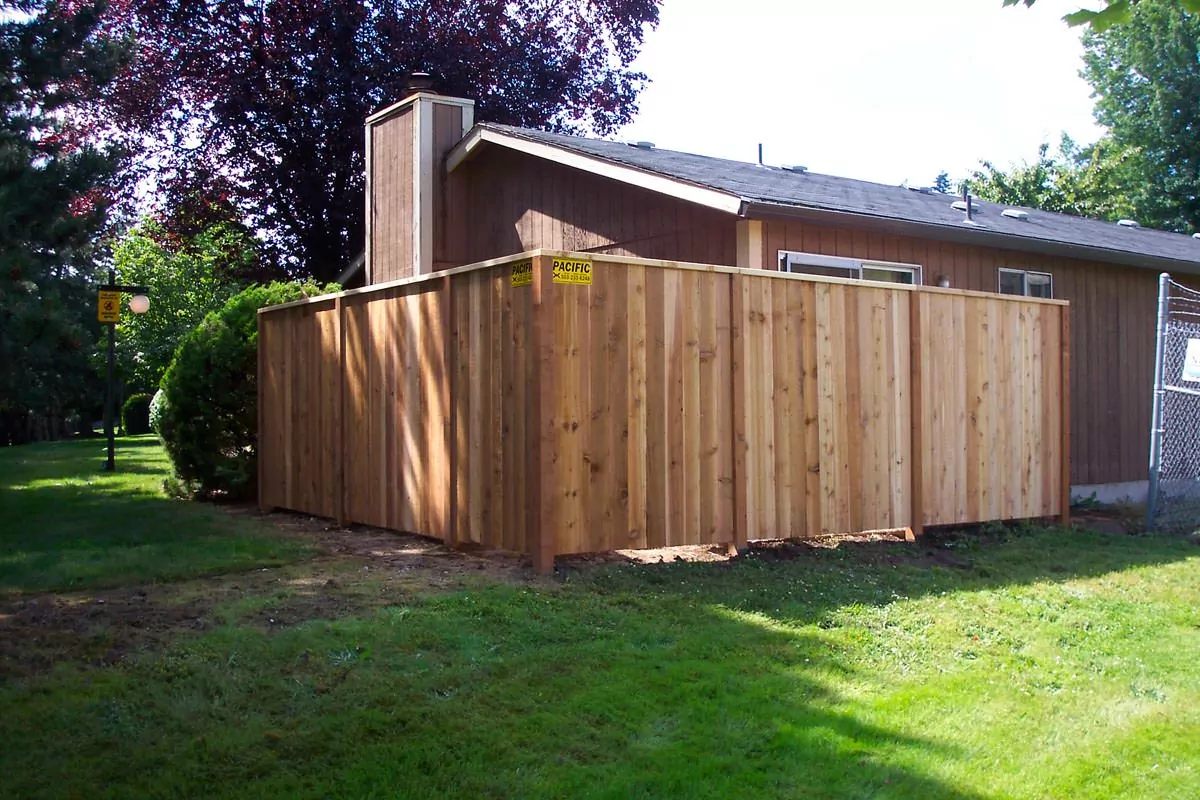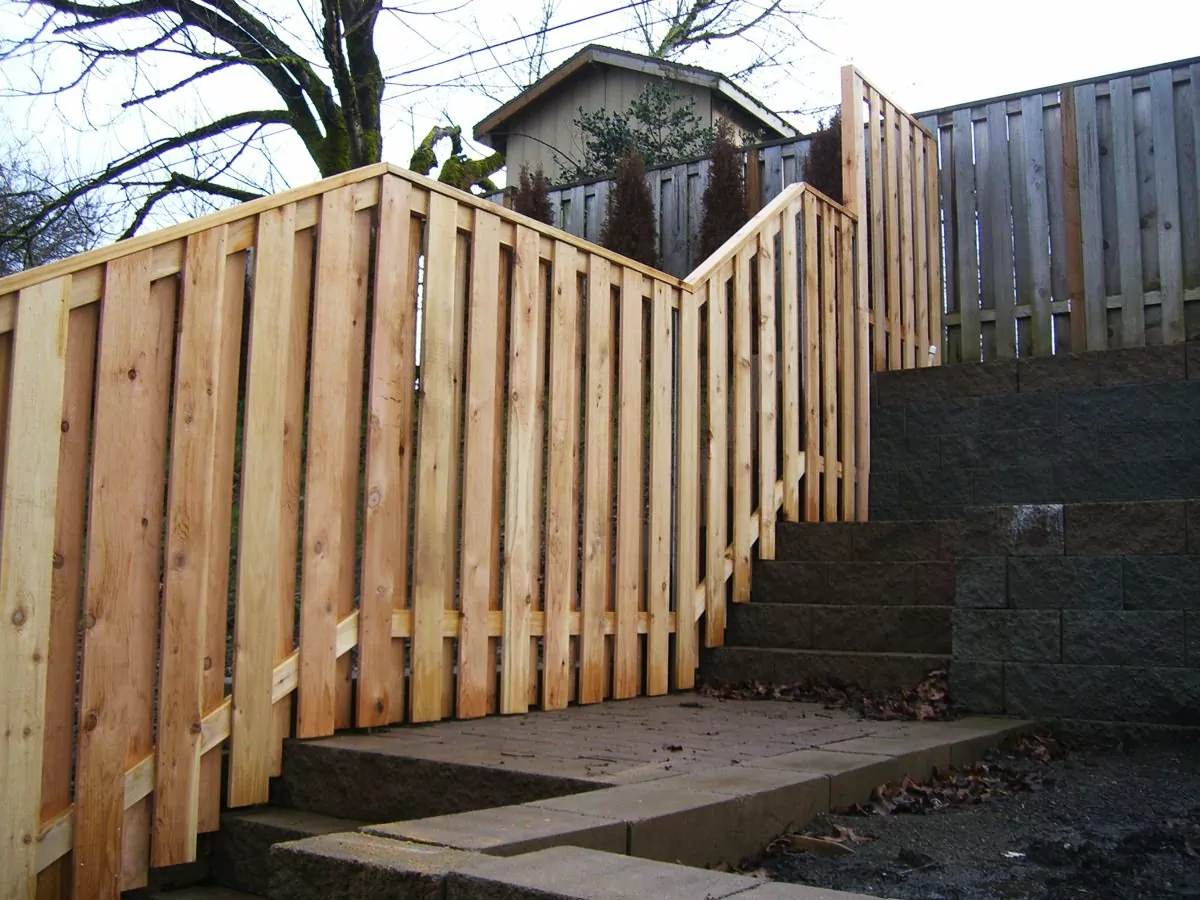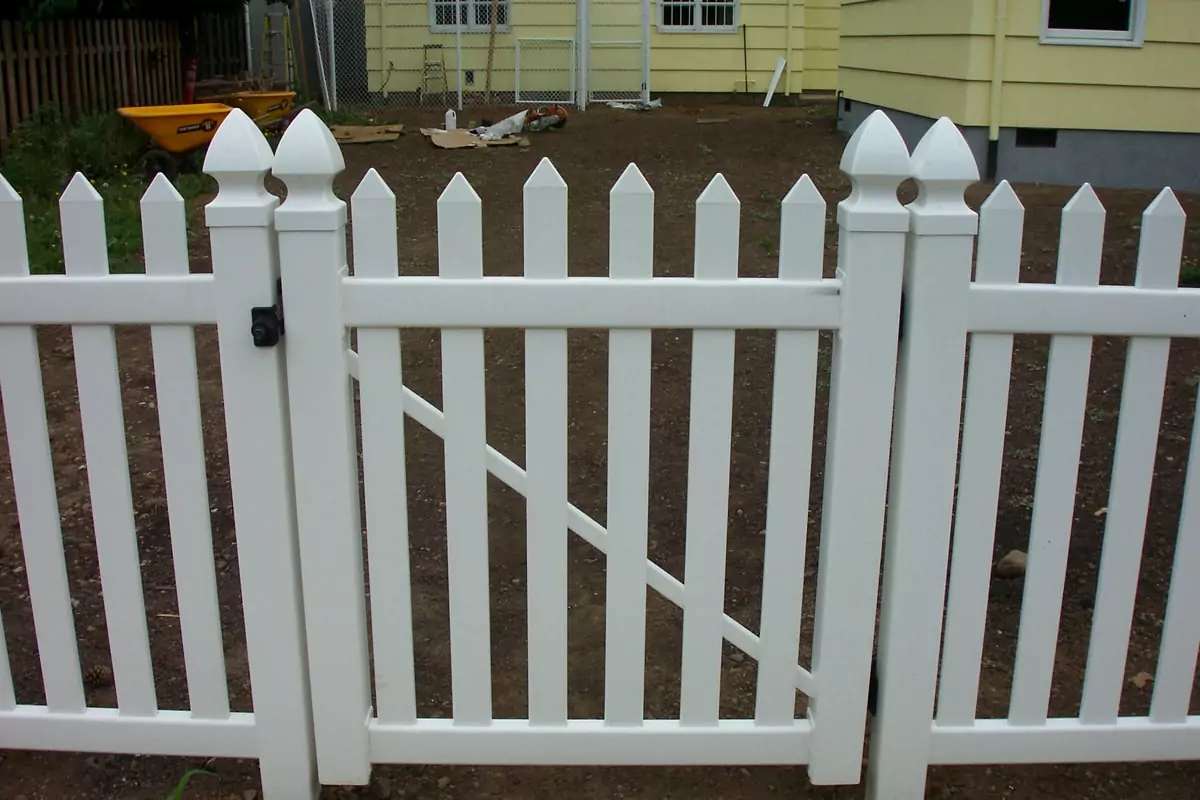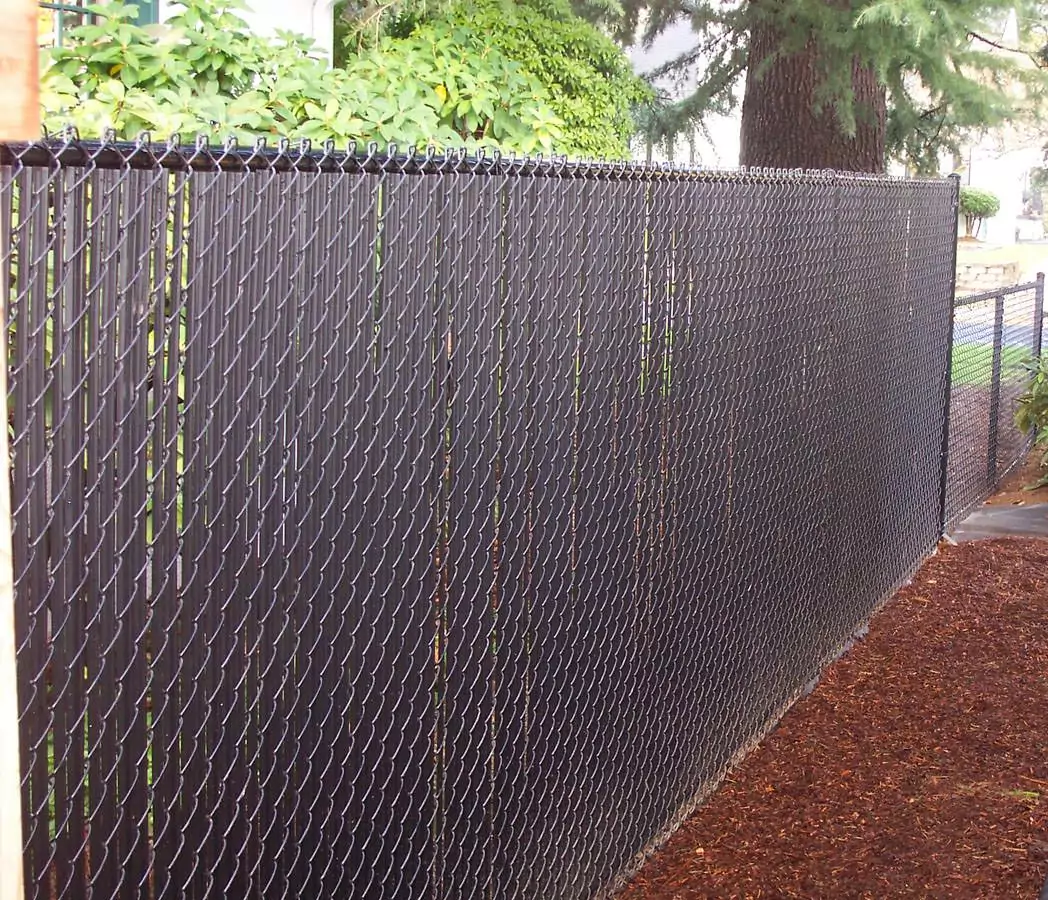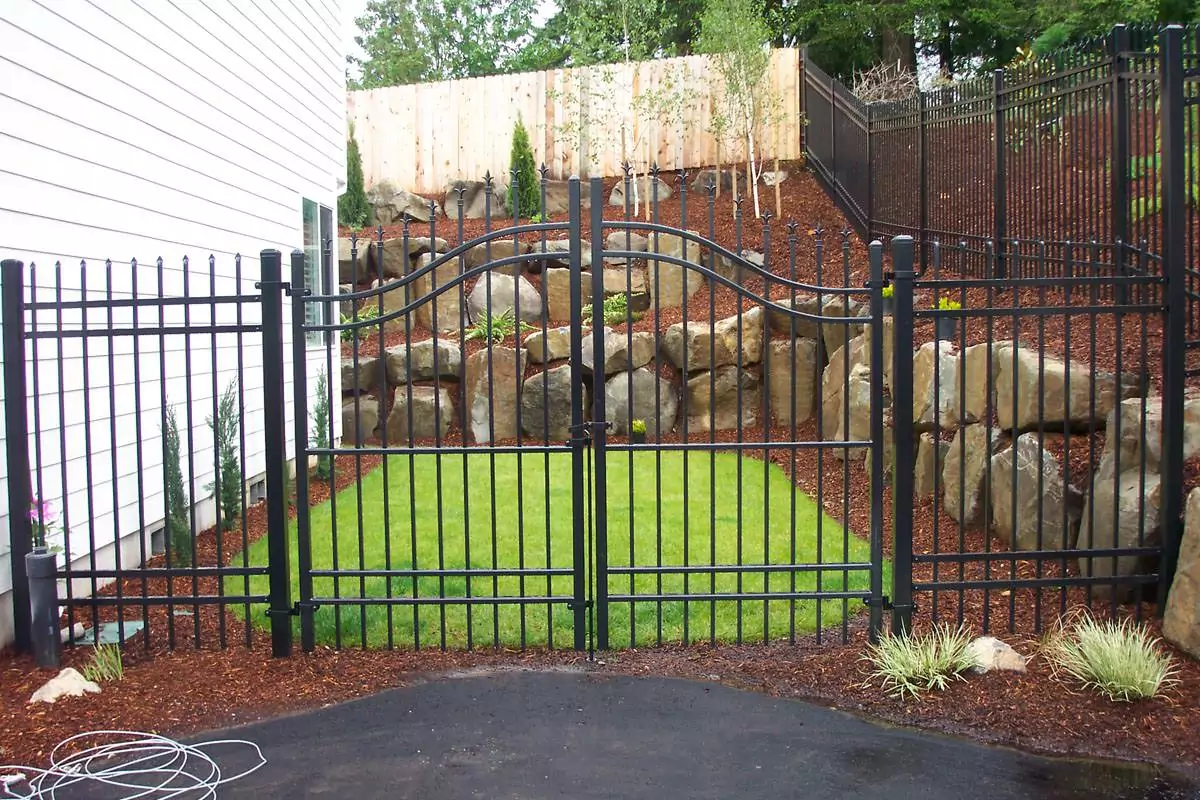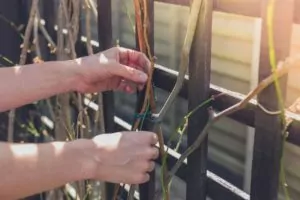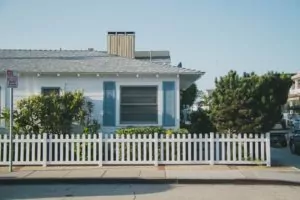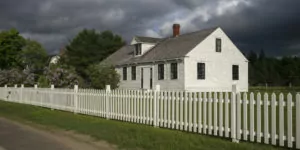Is your existing fence falling down around itself, leaving an old and beat-up-looking eyesore? Or did you just buy a new home that doesn’t have any fencing installed yet? In either case, if you’re looking to get a new fence installed, you may be wondering if there are different types of residential fences beyond the ordinary.
Residential fences are not just an ordinary home feature, they offer a range of benefits that make them a must-have for homeowners. First and foremost, they are an excellent way to add security to your property, keeping unwanted visitors out while ensuring the safety of those inside.
They are also perfect for enhancing privacy, ensuring your outdoor activities and relaxation are not interrupted. Not to mention keeping the dogs from roaming around the neighborhood–or keeping the neighborhood dogs from roaming your backyard! They can also keep larger critters from getting at your gardens if you live in more bucolic areas of Oregon.
Moreover, residential fences come in numerous styles and materials, providing an aesthetic touch that adds value to the overall look and feel of your property. Whether you are looking for a classic wooden fence or a modern steel one, there is always a perfect option for you.
Types of Residential Fences
Depending on what you want from your residential fence, there’s a design and style for your particular tastes. Here’s a look at the different types of residential fencing options available to you:
- Wood
- Vinyl
- Chain Link
- Wrought Iron
- Stone, Masonry
- Natural
Wood
Wood fences have been used to enhance home exteriors for centuries and for good reason. They offer a classic and natural look that can complement almost any architectural style. The beauty of wood fences lies in their versatility, as there are many different types to choose from, each with its own unique design and purpose.
Whether you’re looking for a small picket fence to outline your front yard property, a privacy fence to create a secluded backyard oasis, or a split rail fence to add rustic charm to your garden, there’s a wood fence to meet your needs. They require more upkeep and maintenance than other materials, but it’s hard to beat the classic look.
The traditional wooden slat private fences are usually built vertically, although horizontal wooden fences are becoming quite popular as well. These tall, solid wooden fences offer excellent privacy and are often constructed with boards tightly spaced to block the view from outside.
For a more rustic or traditional farm look, split rail fences are a great way to mark property lines without making things look too closed off. They are essentially two or three rails with no privacy slats. Great for keeping livestock on the property without completely blocking the view of the property.
Picket fences–often shorter than privacy fences with small slats placed further apart–are the ultimate option for decorative fencing. They are usually used in the front yards of residential homes to mark off boundaries but also keep small children and pets from escaping the yard or to protect garden beds. In some cases, the fences may be used as a standard for climbing plants.
Vinyl is a Low Maintenance Type of Residential Fence
Vinyl fencing offers several advantages that make it a solid choice for residential homeowners and property owners and its popularity continues to grow. One of the primary benefits of vinyl fencing is its durability, and resistance to rot, decay, and insect damage–common issues with wood. Although it can mimic the look of wood, and won’t warp, crack, or splinter over time, some might feel it just doesn’t have the same warmth as wood.
However, vinyl fencing is virtually maintenance-free: no staining, painting, or sealing to maintain its appearance. It only needs occasional cleaning with soap and water to remove dirt and grime that accumulates during the stormy seasons. Most vinyl fences are designed to last for decades, making them a cost-effective investment over time.
There is a wide range of styles and colors so you can choose a design that complements your property’s aesthetics. Whether you prefer the classic look of white picket fencing or a more modern and sleek design, vinyl offers versatility in design options. If there is a style of wooden fence you like, chances are there is a vinyl version.
Vinyl fencing offers a lot of benefits, including durability, low maintenance, a variety of styles, long lifespan, eco-friendliness, easy installation, and resistance to harsh weather conditions. These qualities make vinyl fencing an attractive and practical choice for those seeking a long-lasting and aesthetically pleasing fencing solution for their properties.
Chain Link
Just as common as wooden fences, chain-link metal fencing has been a relatively inexpensive option for decades and decades. While chain link fencing may not offer the same level of privacy or aesthetics as some other materials, its affordability, durability, and versatility make it a practical option for many homeowners.
First and foremost, chain link fencing is one of the most cost-effective residential fencing options available and is relatively easy to install. The galvanized steel posts are very durable, lasting for decades with very little maintenance. They keep kids and pets in while allowing you a clear look at the surroundings beyond your property.
And they can be highly customizable as well. If you can build a support structure with posts and rails, then you can use chain link for almost any kind of fence. This is why it’s so popular for parks, pools, playgrounds, athletic fields–and residential use. It’s the perfect solution for kennels and dog runs as well if you need that on your property as well as keeping critters out of your garden beds.
The only downside to chain link fencing is that it isn’t the most appealing option when compared to other choices. However, slats can be used for added privacy and to give the fence an upgraded look. Vinyl coating in a variety of colors gives chain link fencing a more clean-cut look, too.
Wrought Iron: Elegant Types of Residential Fence
Wrought iron fences are known for their elegance and strength, often associated with estates rather than suburban bungalows. Though it comes with a higher price tag than other materials, its numerous benefits (beauty, durability, and security) make it a popular choice for residential settings.
Nothing matches the appearance of wrought iron fencing, with its stately bars and ornate finials on top, they seem to add extra weight to any property. It can enhance the overall curb appeal of a property, giving it a sophisticated and classic look. The intricate designs and decorative elements make it a favorite choice for homeowners seeking an elegant and stylish fencing option.
But it isn’t just about beauty–wrought iron is exceptionally durable and long-lasting. It is resistant to rust, corrosion, and weather damage, perfect for the four-season weather we get in the Pacific Northwest. With proper maintenance, wrought iron fences can withstand the test of time and remain in excellent condition for decades.
It also has a bit of beast as well, providing a strong and secure barrier around your property. Its sturdy construction deters intruders and can enhance the security of a residential area. Its height and lack of footholds make it challenging for trespassers to climb over. Wrought iron fencing just screams “Don’t try it, pal” to potential intruders.
Stone/Masonry
Nothing has the gravitas of a stone fence just because of the sheer weight of the materials and solid construction. These types of fences aren’t as common as others because of their price (both in installation and materials) and it’s rare to see a stone fence built high enough for any privacy. In fact, these types of materials are most often used for retaining walls.
However, a combination of masonry fences and other types of fencing do spot the suburban landscape. Tastefully done, it can match the aesthetics of a wrought iron fence–especially when used in conjunction with wrought iron. It’s such a unique look that you can even get vinyl fence panels with a stone or masonry facade.
Different Types of Residential Fences: Natural
No type of material will give your property the same look as a well-manicured hedge. There’s a lot more maintenance involved when using shrubs or dense evergreens to mark off a boundary, especially when it comes to shaping your hedges. And they can take a long time to grow thick enough for the coverage you need.
But they are as eco-friendly as you can get and provide a beautiful, green point of interest to your home (depending on the plants you use). But you might need to depend on your neighbor to keep their side of the hedge looking nice and healthy for a uniform look (or offer to do it for them).
When choosing a residential fence style, consider factors such as your specific needs (privacy, security, aesthetics), maintenance preferences, budget, and local regulations. Each type of fence material has its own set of advantages and drawbacks, so it’s essential to select the one that best suits your property and lifestyle.
Have questions about the best kind of fencing for your residential needs? Get in touch with Pacific Fence and Wire. For more than a century, we’ve been installing fences of all kinds around the Portland Metro area and beyond. Need to fix a fence? We have a wide variety of materials for you to choose from and we can make sure you get exactly what you need.


